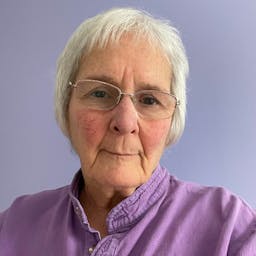Another Form of Violence
May 28, 2019
Story
Nakuset is one of the most determined and dedicated activists I have ever met. She is the Executive Director of the Native Women’s Centre of Montreal, the creator, host and producer of a television show called Indigenous Power, and Co-Chair of the Montreal Urban Aboriginal Strategy Network. She is understandably fiercely protective of the women at the Shelter, and devoted to improving the quality of life of Indigenous people in Montreal, many who have migrated here from the North and found themselves homeless. She is well known as someone who can be counted on for help, respect and love.
Recently Nakuset has been asked her opinion in the news a lot. She has also been asked to do training for the police as tensions have strained to the breaking point due to a determination last week that 6 police officers named in 37 counts of sexual abuse toward Indigenous womenwill not face charges due to “not enough evidence”. Her opinions and help are sought out in the midst of an atmosphere here in Quebec these days of a mix of despair and rage.
You would think that being front, centre and behind the scenes all at once would be too much for one person, but this is just the tip of the iceberg of what Nakuset is juggling expertly. There is another form of violence that Nakuset and her two sisters, one older, one younger have endured. Theyalong with an estimated 20,000 Indigenous children were stolen from their parents in what has been termed “The '60’s Scoop\"which went on between the 1960’s and 1980’s here in Canada. By the timethe sordid history ofCanada’s Residential Schools became exposed,which all Indigenous children had beenforced into between 1876 and 1996, it is estimated thatover 6000 children died out of about 150,000 children, and rampant physical, psychological and sexual abuse by teachers, religious leaders was the norm.As these schools began to be closed they werereplacedwiththe practise of taking Indigenous childreninto foster \"care” in white homes,continuing the attempt to assimilate them in this new way.
Nakuset and her sisters were born in Manitoba. Her older sister was taken to northern Ontario, and their younger sister was taken to Austria. Nakusetwas brought to Montreal. Sheand her older sister have been in touch for a few years. Through the internet and much searching, they are newlyall threein touch. The CBC (Canadian Broadcasting Corporation) interviewed Nakuset and taped the first conversation that all 3 sisters had with each other very recently. They have plans to meet next summer. Nakusethas sent the link to listen to this conversation.
She also sendsmore detail on what it was like to be “scooped”includingthe messages that she was given to keep her from her Cree culture. Added arethe linkto her television show available through YouTube,and the link to the Montreal Native Women’s Shelter.
Scooping Indigenous children:http://www.cbc.ca/beta/news/canada/montreal/real-talk-on-race-point-of-v...
Sisters reuniting:http://www.cbc.ca/news/canada/montreal/60s-scoop-reunited-sisters-cbc-1....
TV Indigenous Power:https://www.youtube.com/channel/UC7YBetKdoyB58dVY0G5Xdjg
Native Women’s Shelter of Montreal:http://www.nwsm.info
There are many who are deep in social action, who inspire and encourage more people than they know. Nakuset is one. With everything else she is doing, a priority for her is monitoring the localgovernment agencies that continue to take Indigenous children away, placing them in non-Indigenous homes.Her parting words with a smile and simple message, \"It needs to be done\".
http://www.cbc.ca/news/canada/montreal/60s-scoop-reunited-sisters-cbc-1.3663770




